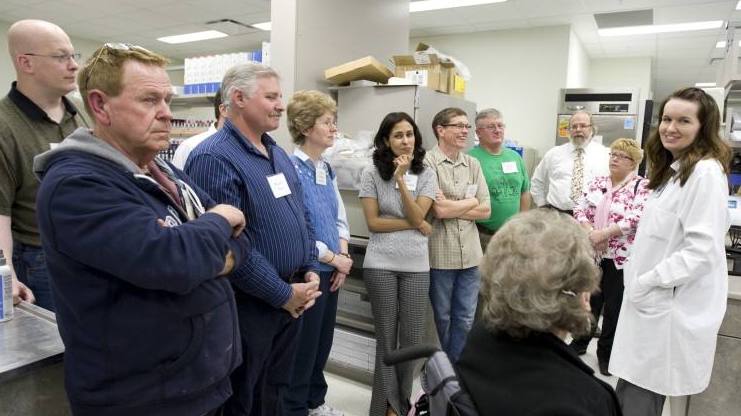-
Science Saturday: Community voices guide use of biobank samples in research
Mayo Clinic supports biobanks—large collections of patient biological samples—near each of its three campuses in Arizona, Florida, and Minnesota, with the goal of supporting research to broaden the understanding of health and disease. Paired with each biobank, Mayo fields a community advisory board (CAB), whose members are recruited from the local community to help guide the direction and conduct of research.

“Each sample in the biobank represents a person from our local community,” says Barry Hall, a member of the Florida CAB. The board’s job is to safeguard those samples: to make sure they’re used in research that honors the donor’s contribution, even though the person who donated their samples may never be able to see or benefit from the results.
Community advisory board members also want to ensure that research using biobank resources aligns with the needs of the community. In Phoenix, Mayo Clinic collaborates with Mountain Park Health System and Arizona State University to host a CAB that works with the Sangre Por Salud (Spanish for Blood for Health) Biobank. This biobank was created to expand precision medicine research to the Latino community, a population that is underrepresented in biobanks and in research. “Every community is different, and what they need from research is different too,” says Crystal Gonzalez, community advisory board coordinator for Sangre Por Salud.
In addition, community advisory board members ground research in the values of the community, helping investigators understand how their work may be perceived from the outside. “I think researchers are so passionate about curing disease that they sometimes have blinders on,” says Kathryn Hollenhorst, a member of Mayo’s community advisory board in Minnesota. “I feel it is our responsibility to make sure they take the blinders off and be challenged to see things from a lay person’s perspective."
Read the rest of the article on Advancing the Science blog. ______________________________________________
Other Mayo Clinic medical research websites:
- Research at Mayo Clinic
- Discovery’s Edge
- Advancing the Science
- Forefront
- Mayo Clinic Center for Individualized Medicine
- Center for Regenerative Medicine
- Center for the Science of Health Care Delivery







